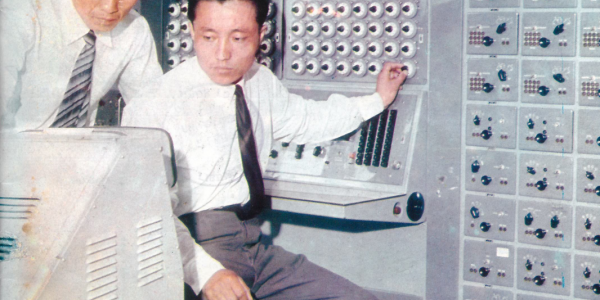Engineering self-reliance: Scientism, economic planning and Juch'e ideology in Cold War North Korea
The existence and persistence of a socialist economy aiming to achieve self-sufficiency in the Democratic People's Republic of Korea (DPRK) is often explained solely by coercive factors: Soviet influence or tyrannical domestic leadership.
By looking at scientific literature, economics textbooks and North Korean Workers' Party documents from the late 50s to the 1980s, this talk shows that both the adoption of a planned economy and the search for self-reliance after the Korean War were not just sudden ideological pronouncements or the product of geopolitical pressures, but also technoscientific solutions to a set of domestic economic and social issues.
Yet these solutions also brought on new problems of their own. The transition to a planned economy, for instance, greatly increased data collection and processing needs quickly leading to a national shortage of human computational labor. It seemed, however, that these new problems too could be solved with the help of technology, as "electronic counting machines" and the new field of cybernetics promised the tools that would allow for the automation of planning. The North Korean leadership's continuing adherence to socialism, then, was less a matter of stubborn attachment to orthodoxy than the product of faith in the ability of science and technology to keep engineering solutions to the country's problems.
Sponsored by East Asian Languages and Cultures and Global Studies
image: researchers from the Automation Institute under the Academy of Sciences using computers to automate economic planning, from "Korea Today", vol. 12, 1974.

